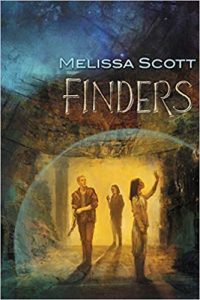Liz Bourke Reviews Long Live Evil by Sarah Rees Brennan
 Long Live Evil, Sarah Rees Brennan (Orbit 978-0-35652-249-4, £20.00, 440pp, hc) August 2024. Cover by Syd Mills.
Long Live Evil, Sarah Rees Brennan (Orbit 978-0-35652-249-4, £20.00, 440pp, hc) August 2024. Cover by Syd Mills.
Sarah Rees Brennan has had a varied and interesting career to date writing YA novels, including tie-ins for The Chilling Adventures of Sabrina and Fate: the Winx Saga in addition to her original work. Long Live Evil is her first novel aimed primarily at an adult audience. It is simultaneously a wholehearted embrace of, and a commentary on, the high-fantasy high-angst high-romance end of the fantasy genre: the ones whose stereotype is a love triangle centred on a naive (innocent, good) young woman, featuring honourable young men who’d defend her with their lives and the bad boys who’d burn the world for her.
It’s very entertaining.
Rae is dying, slowly. Her last remaining solace is her favourite book series (although she never properly read the first one). But she’s offered a second chance at living by a mysterious stranger: a magical bargain that will send her into the world of her favourite series, to find the Flower of Life and Death when it blooms once a year. If she can, she may return cured, but there’s a catch. She has only one chance. If she misses it, it’s gone forever, and she’ll never come home.
Rae doesn’t really believe this, but she’s been very sick for a long time, so sure, why the hell not? (I mean, you wouldn’t believe it either.)
She walks through a door and wakes up in the body of a character from the novel. Healthy! Fit! Looking like herself, only more beautiful! So far, so good. Unfortunately, she’s in the body of the story’s villainess – the so-called Beauty Dipped In Blood, Lady Rahela Domitia, the heroine’s wicked stepsister – a day before she’s due to be executed for trying to frame Lia, the beautiful, innocent heroine, for treason. Rae wants to live – Rae wants to be powerful enough to seize her own life by the throat – and she’s not about to take her imminent execution lying down. This is a fantasy world. It’s not real. Nothing in it matters. Why shouldn’t she embrace being evil, up her villain game, convince the king she’s actually a seer, and survive palace politics on the edge of a chasm filled with ghouls and monsters long enough for her to grab the magic flower when it blooms?
But Rae assumes she knows more than she does, and it’s easy to get attached both to the people who are suddenly being three-dimensional and alive before her eyes, and to her idea of what the novel she’s living in should be: who should live, who should die, who should be romantically involved. Thinking she knows more than she does, and that she can control the outcomes, leads her into situations that are equal parts hilarious and melodramatic.
People are more than their roles. Social structures helped make Rahela Domitia who she was, before Rae arrived. This is a setting that pits women against each other for the king’s hand in marriage and judges women harshly for, like Rahela, becoming the king’s mistress (even though it is, in fact, very difficult to tell a powerful autocrat no and have it stick, and even though sexual connections with men represent one of the few routes to power open to women): a setting with rigid class roles and rigid gender ones, too.
From the point of view of Emer, Rahela’s formerly loyal maid, her mistress has had a complete personality transplant. Emer, full of seething unarticulated class rage and a sense of personal betrayal towards pre-Rae Rahela, is a fascinating character: The chapters from her viewpoint are some of the most interesting in the entire novel, and I’d like to see more of her journey.
Brennan turns a keen and critical eye on the structures of oppression where for some women the route to survival or power is to embrace the role of the sexually active, jealously scheming villainess, and for others, developing a harmless, helpless, pure-and-innocent persona while working furiously to outperform and outmanoeuvre one’s rivals is the only route to success – while for some, like Emer, the game is inaccessible from the start. This is on top of fast-paced romantic melodrama. But Brennan is also, I think, engaged in an interesting study of the contrasts between ideas of heroism and villainy. To think oneself a hero, or at least in the right, means that one must ignore – or justify as worth the cost – the consequences that one’s actions have for other people: It’s an act of self-deception as much as anything, as Brennan seems to portray it. Villainy, on the other hand, allows for honesty: You can see the consequences and acknowledge that they’re not really worth it to anyone but you, and embrace selfishness.
Yet – and here is where Brennan is in dialogue, I think, with a history of queer and subaltern literature – there are times when the world casts the desire even to live, much less to live wholly and completely as oneself, as intolerable selfishness. To be the wrong class, the wrong colour, disabled or queer or trans or performing your gender incorrectly to arbitrary standards that it’s near-impossible to meet, and still to want to live and more, to live with dignity and joy? Why then, you must be a villain! The sympathetic characters of Long Live Evil all, in some fashion, participate in (or embody) some of these subaltern identities, and Brennan’s interrogation of what it means for them to be villains pairs compellingly with the energetic melodrama of the plot.
Long Live Evil ends on a cliffhanger, with many disasters in midprogress and Rae coming face to face with the realisation that her knowledge of the book was more dangerously limited than she had imagined. I’m reliably informed that there will be a sequel. I can’t wait to read it.
Liz Bourke is a cranky queer person who reads books. She holds a Ph.D in Classics from Trinity College, Dublin. Her first book, Sleeping With Monsters, a collection of reviews and criticism, is out now from Aqueduct Press. Find her at her blog, her Patreon, or Twitter. She supports the work of the Irish Refugee Council and the Abortion Rights Campaign.
This review and more like it in the July 2024 issue of Locus.
 While you are here, please take a moment to support Locus with a one-time or recurring donation. We rely on reader donations to keep the magazine and site going, and would like to keep the site paywall free, but WE NEED YOUR FINANCIAL SUPPORT to continue quality coverage of the science fiction and fantasy field.
While you are here, please take a moment to support Locus with a one-time or recurring donation. We rely on reader donations to keep the magazine and site going, and would like to keep the site paywall free, but WE NEED YOUR FINANCIAL SUPPORT to continue quality coverage of the science fiction and fantasy field.
©Locus Magazine. Copyrighted material may not be republished without permission of LSFF.





